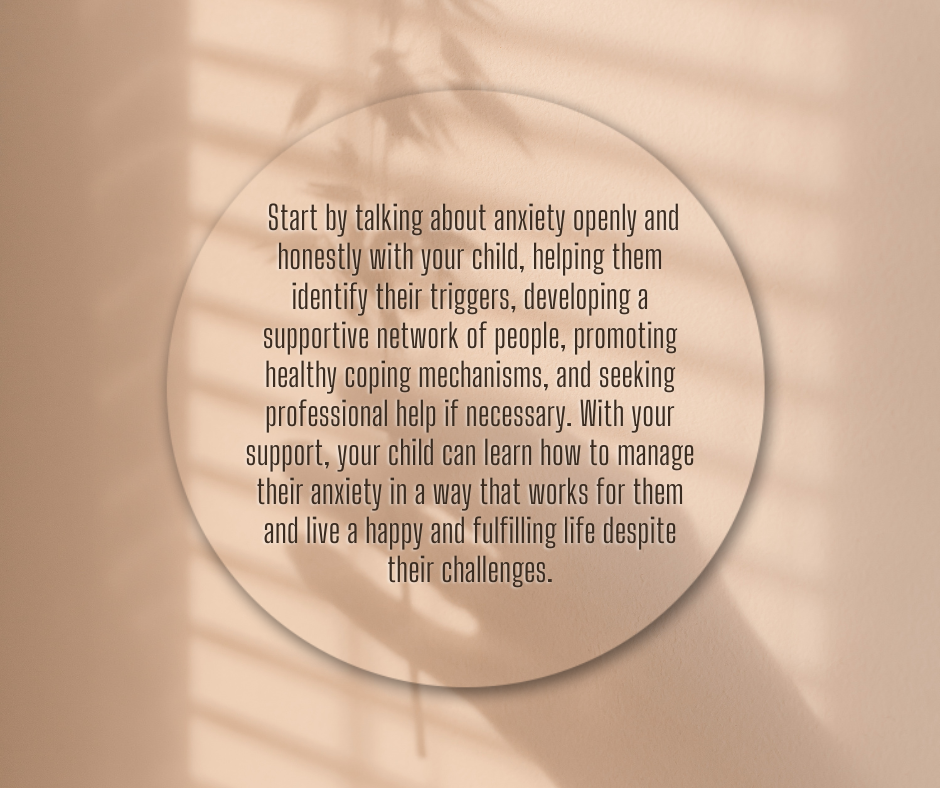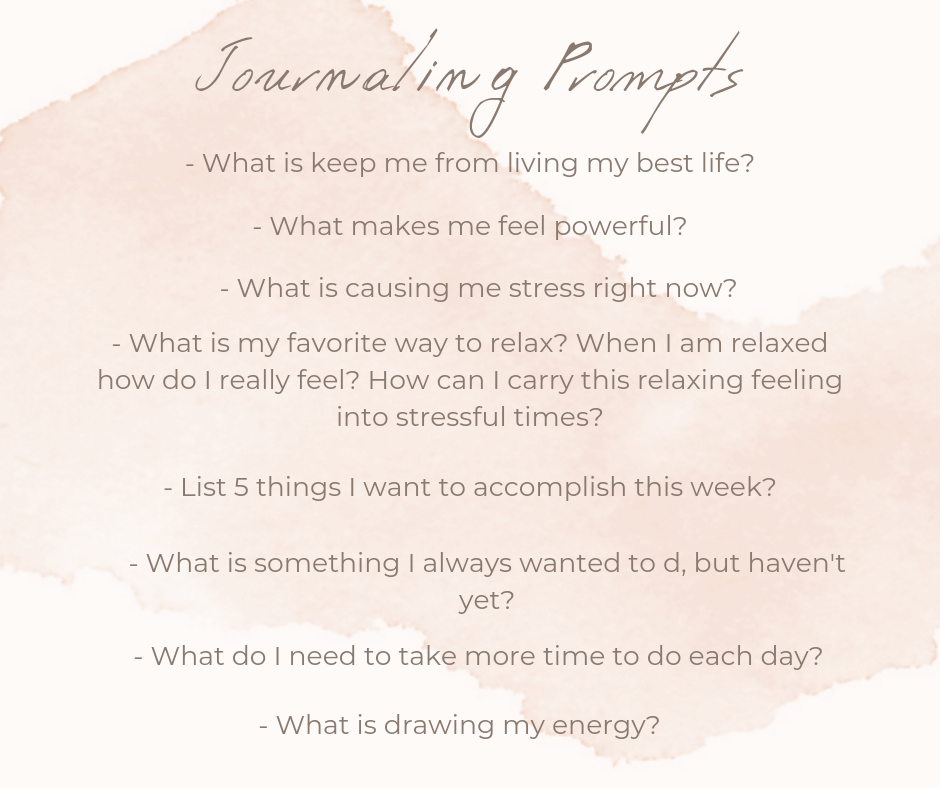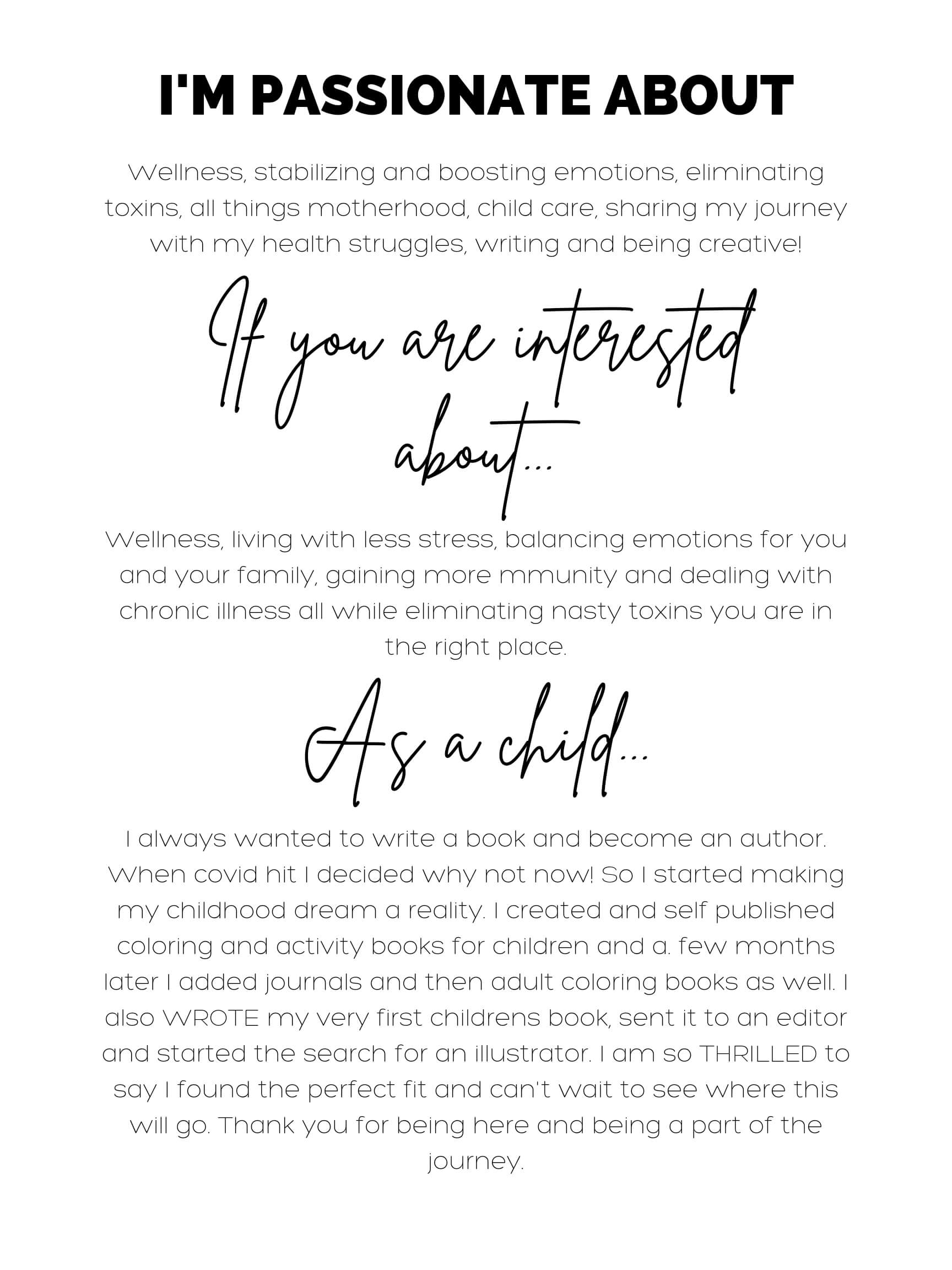Being a mom is one of the most rewarding experiences a woman can have. But it's also one of the most challenging. It is the hardest job in the world. You are constantly juggling a million different things and trying to keep all the balls in the air. Some days it feels like you are running on empty and just trying to make it to bedtime. So, on those days it is totally normal to have a moment (or two or three) of frustration.
Moms are expected to do it all: be perfect wives, perfect mothers, and perfect employees (if they're working outside the home). And when they're not meeting everyone's expectations, they're usually beating themselves up for not being good enough.

There are moments when every mom feels like she's about to lose her mind. The screaming baby, the tantruming toddler, the teenage drama...it can all be too much. But instead of letting frustration take over, try to take a step back and view the situation from a different perspective. See the humor in it. Remember that this too shall pass. And most importantly, cut yourself some slack. You're doing the best you can, and that's all anyone can ask of you.
3 Reasons Why Moms Get Frustrated
1. They're Expected to Be Perfect
As mentioned before, moms are expected to do it all. They're expected to be perfect wives, perfect mothers, and perfect employees (if they're working outside the home). And when they're not meeting everyone's expectations, they're usually beating themselves up for not being good enough. It's no wonder that moms often feel frustrated.
2. They Don't Have Enough Time for Themselves. We all need (and deserve) a break sometimes. Being a mom is a 24/7/365 job. It's non stop and there is no break. That is tough, especially when you are already feeling so run down and exhausted. If you are at your wits end, it's okay to take a break. Step away for a few minutes (or more) and do something for you. Don't forget about you. Take care of yourself like you do with all your loved ones. Take time for a hobby, a bath or reading a favorite book. Giving to others and not giving back to you can start to feelings of resentment and feeling trapped. You deserve it the me time!
3. They Feel Like They're Failing
Many moms feel like they're constantly failing because they can't do everything perfectly. But the truth is that there's no such thing as a perfect mom (or human). We all make mistakes; it's part of being human. So instead of beating yourself up for not being perfect, focus on the fact that you're doing the best you can with what you have. You're an amazing mom, and your family is lucky to have you!
If you're feeling frustrated as a mom, know that you're not alone. Every mom has moments when she feels like she's about to lose her mind. But instead of letting frustration take over, try to take a step back and view the situation from a different perspective. See the humor in it. Remember that this too shall pass. And most importantly, cut yourself some slack—you're doing the best you can!

As a mom, it can be heartbreaking to see your child struggling with anxiety and moments of panic. The last three years have taken its toll. In my home too. You want to do everything in your power to help them, but sometimes it feels like you just don't know what to do. If your child is struggling with anxiety, here are five tips that may help.
1. Be open and honest about anxiety.
The first step is to talk about anxiety openly and honestly with your child. Explain what anxiety is and how it can manifest itself physically, emotionally, and behaviorally. Let them know that it's normal to feel anxious sometimes, but if they're feeling anxious all the time or their anxiety is interfering with their daily life, it's time to seek help from a professional.
2. Help them understand their triggers.
Anxiety often has triggers, so it's important to help your child identify what theirs are. Once they know what sets off their anxiety, they can start to develop a plan for how to deal with those triggers when they arise.
3. Develop a support system.
A support system is crucial for anyone dealing with anxiety, but it's especially important for children. Help your child develop a network of supportive people—whether that's family members, friends, teachers, or counselors—who they can rely on when they're feeling anxious.
4. Promote healthy coping mechanisms.
There are lots of healthy ways to cope with anxiety, but not all of them will work for every child. Some common coping mechanisms include exercise, journaling, and deep breathing exercises. Help your child find the coping mechanism that works best for them and encourage them to use it when they're feeling anxious.
If your child is suffering pressures and stresses, you know how debilitating they can be.
Essential oils can be a helpful tool for managing anxiety and reducing the frequency and intensity of moments of panic. Some essential oils have calming and relaxing properties that can help to ease anxious thoughts and promote a sense of peace. Other oils can help to balance the nervous system and reduce the physical symptoms of anxiety, such as rapid heartbeat and shallow breathing. To use essential oils for times like this, your child can add a few drops to a diffuser or inhale them directly from the bottle. You can also apply them to your skin, diluted in a carrier oil. Experiment with different oils to find the ones that work best, and remember that it may take some time to see results. With regular use, however, essential oils can help to significantly reduce these worries and improve your quality of life. We enjoy Lavender, Bergamot, Cedarwood, German Chamomile, Stress Away and Ylang Ylang.
5. Seek professional help if necessary.
If your child is struggling to manage their anxiety on their own, don't hesitate to seek professional help from a therapist or counselor who specializes in treating anxiety in children. They can provide valuable tools and resources that will help your child learn how to cope with their anxiety in a healthy way.
If your child is struggling with anxiety, you may feel helpless and unsure of what to do. But there are lots of things you can do as a parent to help your child manage their anxiety in a healthy way. Start by talking about anxiety openly and honestly with your child, helping them identify their triggers, developing a supportive network of people, promoting healthy coping mechanisms, and seeking professional help if necessary. With your support, your child can learn how to manage their anxiety in a way that works for them and live a happy and fulfilling life despite their challenges.
5. Seek professional help if necessary.
If your child is struggling to manage their anxiety on their own, don't hesitate to seek professional help from a therapist or counselor who specializes in treating anxiety in children. They can provide valuable tools and resources that will help your child learn how to cope with their anxiety in a healthy way.
If your child is struggling with anxiety, you may feel helpless and unsure of what to do. But there are lots of things you can do as a parent to help your child manage their anxiety in a healthy way. Start by talking about anxiety openly and honestly with your child, helping them identify their triggers, developing a supportive network of people, promoting healthy coping mechanisms, and seeking professional help if necessary. With your support, your child can learn how to manage their anxiety in a way that works for them and live a happy and fulfilling life despite their challenges.
Are you a busy mom? I think we all are. You may feel like there's not enough time in the day to do everything but what if I told you that by journaling, you could find a little bit of peace and calm in the chaos?
It's true!
Do you journal? I'm not talking about keeping a diary of your day-to-day thoughts (although that can be nice, too), but actually sitting down and writing out your thoughts and feelings on paper? If not, you should definitely consider giving it a try.
Here are three reasons why journaling is great for moms.
1. Helps to Reduce Stress
One of the primary benefits of journaling is that it can help to reduce stress. When you journal, you are able to express your thoughts and feelings in a safe and private space. This can help to relieve some of the pressure you may feel to keep everything bottled up. Additionally, journaling can help you to process difficult events and emotions, which can lead to reduced stress levels.
2. Improves Your Mental Health
Journaling can also improve your mental health in a number of ways. For instance, journaling can help you to identify negative thought patterns and work on changing them. Additionally, journaling can help you to develop a greater sense of self-awareness and understanding both of which can lead to improved mental health.
3. Boosts Your Immune System
Journaling can also boost your immune system. One study found that people who wrote about their stressful experiences had lower levels of immunity-related proteins than those who did not write about their experiences. Another study found that people who wrote about their emotions had lower levels of inflammation, which is linked to a number of chronic diseases.
In addition to being a great way to boost your mood, reduce stress, well-being, and improve immunity journaling can also help you become more mindful and present in your everyday life. By taking a few minutes to write about your experiences, you'll be able to reflect on them more deeply and gain greater insight into yourself and the world around you.
Journaling can help you organize your thoughts, reflect on your day, bring a more positive outlook on life, help set goals for the future or simply be a creative outlet that is all your own. And because we are all busy, it only takes a few minutes each day. So why not give it a try? You may be surprised at how beneficial journaling can be.
I have created journals to write about your daily experiences, positive thoughts, gratitude, to vent your frustrations, explore your thoughts and feelings, or even to track things like your sleep, dreams or medical symptoms.
You can grab one of my journals here:
Color splash - https://amzn.to/3s4baqX
My Little Notebook 2022 - https://amzn.to/3ESlV7x
My Sleep and Dreams Journal - https://amzn.to/3VPZDcH
Be Positive - https://amzn.to/3gkutK3
Gratitude Journal - https://amzn.to/3CGOj9L
Not sure what to journal about? Here is some starter prompts to give you some ideas. 

* Keep in mind that I may recieve commisions when you click on these links and make purchases.
 How long is too long to wait for a diagnosis? The question that has been lingering on my mind. On Thursday, the 13th I went in for my second MRI. It has been a long process. Almost 15 months. I understand the exhaustion, the frustration, feeling your body change, the pain, the loneliness, the alarm. So today I'm writing about it and hope this will help to others that are in waiting. Enjoy and remember to take a breath and know you are not alone.
How long is too long to wait for a diagnosis? The question that has been lingering on my mind. On Thursday, the 13th I went in for my second MRI. It has been a long process. Almost 15 months. I understand the exhaustion, the frustration, feeling your body change, the pain, the loneliness, the alarm. So today I'm writing about it and hope this will help to others that are in waiting. Enjoy and remember to take a breath and know you are not alone.You have been waiting for what seems like forever. The symptoms started small, but now they're starting to take over your life. You know something is wrong, but you can't seem to get a straight answer from your doctor. How long is too long to wait for a diagnosis?
If you're experiencing symptoms that are interfering with your quality of life, it's important to advocate for yourself and push for a diagnosis. However, the process of getting a diagnosis can be complicated, and it's not always possible to get an answer right away. In some cases, doctors may be reluctant to give a definitive answer until they've ruled out all other potential causes. This can be frustrating, but it's important to remember that your doctor is trying to give you the best possible care.
If you're experiencing symptoms that are interfering with your quality of life, it's important to advocate for yourself and push for a diagnosis. However, the process of getting a diagnosis can be complicated, and it's not always possible to get an answer right away. In some cases, doctors may be reluctant to give a definitive answer until they've ruled out all other potential causes. This can be frustrating, but it's important to remember that your doctor is trying to give you the best possible care.

There are a few things you can do to speed up the process:
1) Get a second opinion: If you feel like you're not getting anywhere with your current doctor, it may be helpful to seek out another opinion.
2) Be persistent: If you're still experiencing symptoms after being told they're "all in your head," don't give up. It's possible that your doctor just needs more information in order to make a diagnosis.
3) Keep a symptom journal: Tracking your symptoms can help your doctor identify patterns and get a better understanding of what's going on.
4) Be prepared for tests: Some conditions can be difficult to diagnose, so be prepared for a variety of tests (including blood work, MRIs, and neurological exams) before you get an answer.
5) Be patient: Diagnosing conditions can be complicated, so it's important to be patient and understand that doctors are doing their best to help you.
No one deserves to suffer from undiagnosed health problems, but unfortunately the process of getting a diagnosis can sometimes be slow and complicated. If you're experiencing symptoms that are interfering with your quality of life, don't hesitate to advocate for yourself and push for a diagnosis. However, try to remain patient throughout the process and understand that in some cases it may take awhile to get an answer.
Now is the time to support our immunity.
With just a little over a month till school starts up again I want my daughters bodies to be in the best condition.
I am thankful for a source I have found that can help boost our wellness naturally.
As a mom, I believe we can do better and be proactive. Why wait for our children to get sick? Now, is the time to start taking care of our wellness before the school doors even open.
Read all the way to the end to find your free recipe for my immune boosting foot rub for kids…a must for now, when they are sick and after they are back to their normal selves.
Our children are everything to us.
We want the best for them, and we want them to be healthy in both body and mind and THRIVE in life. So let's get to it!
1. EAT FOr WELLNESS
Our bodies work the best when we nourish them with pure, whole healthy foods and supplements. Adding more fruits and vegetables and water into your children’s diet will bring them more wellness in the long run.
Try these super immunity boosting foods:
- Sweet potatoes – rich in beta carotene and many other vitamins and minerals which convert into Vitamin A to provide a healthy immune system
- Yogurt – eating yogurt with live and active culture (also known as probiotics are known to help stimulate immune system to help fight of diseases
- Citrus fruits - high in Vitamin C, eating citrus fruits can increase production of white blood cells which can be key in fighting of infection
- Broccoli - high in antioxidants, Vitamin A, C and E and a excellent source of fibre
- Oats – High in beta-glucan, selenium and zinc oats are a natural source to help boost the infection fighting blood cells
- Leafy greens – high in nutrients like flavonoids and carotenoids these greens are rich in Vitamin C and E
- Avocados - offers over 20 vitamins and minerals and is a powerful antioxidant
- Bone broth - helps with anti inflammatory effects, improves sleep, and brain function and helps with joint health)
- Shellfish - are high in Zinc which helps the bodies defensive system to work properly, help with cell growth and wound healing
- Almonds and Sunflower seeds – High in Vitamin E which act as an antioxidant and loaded with iron and high in protein that are all beneficial to a healthy immune system
- Garlic, Ginger, Cinnamon, Oregano, Turmeric – Powerful and full of flavour spices and herbs are high in anti inflammatory compounds, sesquiterpenes, antioxidants, antimicrobial, antiseptic, reducing oxidative stress, polyphenols to help boost and assist your body with higher immune response and assists in fighting off infections
- Bell Peppers – A great source of Vitamin C, beta carotene that are beneficial to both healthy skin, tissue layers/mucous and immune health
- Kiwi - High in Vitamins A, E, potassium, fibre and magnesium
- Pomegranates – High in Vitamins C and E and can help in preventing illnesses and fighting of infections They are shown to be antibacterial and antiviral in lab tests…You HAVE to try my super red juice!
- Watermelon – High in Vitamins A, C, potassium and selenium known to boost our bodies and help with lowering oxidative stress
- Berries – Strawberries, blackberries, blueberries, raspberries and acai berries are all rich in Vitamin C, flavonoids and antioxidants which help protect cells from damage to the immune system
- White, Green and Black tea – Comes packed with antioxidant, flavonoids and polyphenols that can help in fighting of and destroying germs.
We can also provide nourishment through supplements if diet needs are not met by food. Eating real foods should always be our first choice for our children but supplementing to boost their bodies can be beneficial to boosting their immune system.
Some important vitamins and minerals include Vitamin C, Vitamin D, Vitamin E, Calcium, Magnesium, Beta-carotene, Zinc, Iron, and Probiotics.
 Sleep plays an important role in your child’s wellness and can boost their immunity when they get good quality and enough sleep for their age. When we are not sleeping properly it can affect the immune system. Did you know, chronic sleep loss can even make flu vaccines less effective and can be an impact on the duration of being sick.
Sleep plays an important role in your child’s wellness and can boost their immunity when they get good quality and enough sleep for their age. When we are not sleeping properly it can affect the immune system. Did you know, chronic sleep loss can even make flu vaccines less effective and can be an impact on the duration of being sick.Sit down with your kids and set a nightly routine. They will feel included in the process and tend to follow it easier if they have a choice in the decision. Pick an appropriate bedtime and stick to it. I know this is hard during the summer nights but I promise it will help in September!
3. Wellness Through Exersize
Exercise and getting outside is another way that can provide our children’s body with the wellness they need. Simply getting out for a walk can be beneficial in supporting their little bodies. It is suggested that children ages 3 to 17 get 60 minutes or more of active play every day.Physical activity helps flush out bacteria from our lungs and airways and can help with changes in antibodies and helps in promoting the growth of healthy white blood cells. As children move their bodies in exercise their body temperatures raise which can allow us to fight of infection better, just like a fever.
While we are active together as a family or individually our stress levels come down, this helps our bodies to be naturally protected against illnesses.
Try activities such as
- Biking
- Swimming
- Playing sports
- Jumping on a trampoline
- Walking
- Playing at the park
- Hiking
Getting outside will also help our bodies to absorb more Vitamin D. This vitamin that we naturally absorb through the sun is important for bone health, blood cells and immunity. Vitamin D also promotes a more restful sleep and helps us to stay focused, have less stress and anxiety while bringing us more creativity and boosting our energy.

4. Good Hygiene Habits
It is natural for children to want to touch everything, their faces (other peoples face), and put their hands in their mouths. A gentle reminder and forming good habits early can help substantially.
I have always been strict with hand washing. My girls are programed to go straight to the sink when we get home (EVERY SINGLE TIME) to wash their hands.
Coughing into our elbows, shoulder or a scarf and using Kleenex to wipe and blow noses and throwing it in the garbage (why is it so hard for kids to do this?!) can help protect others. Remember, your child’s good hygiene habits are NOT just for themselves but for everyone that your child(ren) encounter during the day.
5. Limiting Environmental and Toxic Exposures
- Children have greater exposure to toxic chemicals for their body weight than adults.
Check it out here: https://healthaffairs.org/doi/full/10.1377/
Look at the products you are using most often on your kids. Pick the first couple of ingredients and google "dangers of ____ and insert the name. Does anything surprise you, scare you, make you second guess the use of the product?


6. Mindfulness
As a mom, we need to be right in our mind. Low self esteem, low confidence, being scared, anxious and struggling with feelings of being burn out can lead to a negative mind and affect our wellness. This is the same for a child.Being in the middle of a pandemic can make this hard.
Try some of these tips to help bring more peace:
- Have fun with your child
- Laugh
- Be silly
- Let them be children
- Talk about their worries, stresses, and anxieties
- Spend time outdoors
- Allow them to do what they want (while keeping safety in mind)
- Create and stick with a schedule
- Connect with others (safely)
- Encourage them to write in a journal
- Recite affirmations
- Find ways to serve the community or other people
- Let them sleep in
- Let them sleep in your bed
- Read stories together
- Play games and cards
- Turn the news off
- Limit screen time
Often, we react to the issues rather then preparing and being ready. Being proactive about our children’s health physically and mentally can be highly beneficial if we are willing to do the work.
Essential oils are a way to make small steps that can turn into big steps.
We can use essential oils topically. This is when we apply them to our bodies. My girl’s favorite place to apply oils is on their wrist, neck, spine, and feet. Although essential oils are safe diluting when applying on children’s skin is highly suggested and always remember to avoid their ears and eyes.
Using aromatically is one of the easiest and quickest ways to use oils. Just open a bottle and breathe it in. So simple! Adding a few drops to an ultrasonic diffuser can bring everyone in the home many benefits.
I have discovered over many years that with continued use before, during and after feeling dis ease or stress in our bodies helps us all receive so many benefits and will cut feeling unwell time in half.
As mentioned, here is my favorite immune boosting foot run…we call it “oils on toes”!
10 drops Thieves
Mix all essential oils and carrier oil together.
Want to learn more? Get in touch with me to discover more wellness so you do not need to stress about going back to school!


